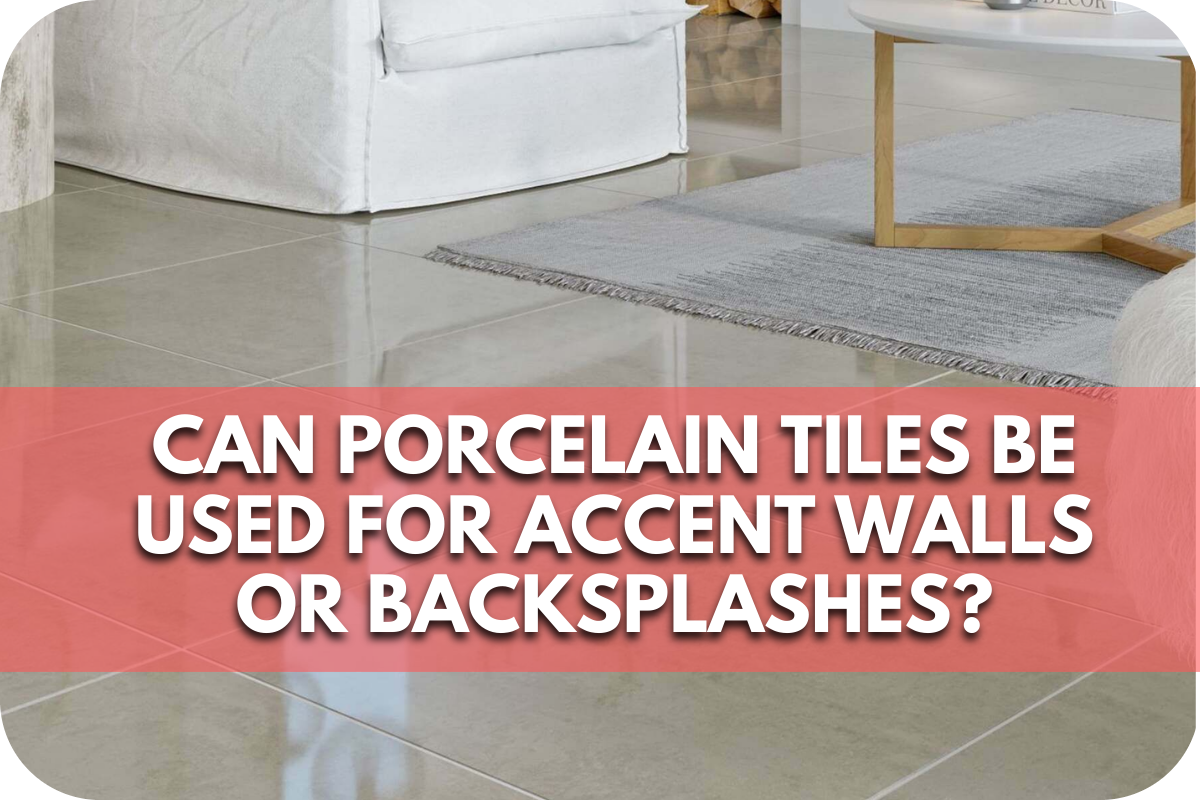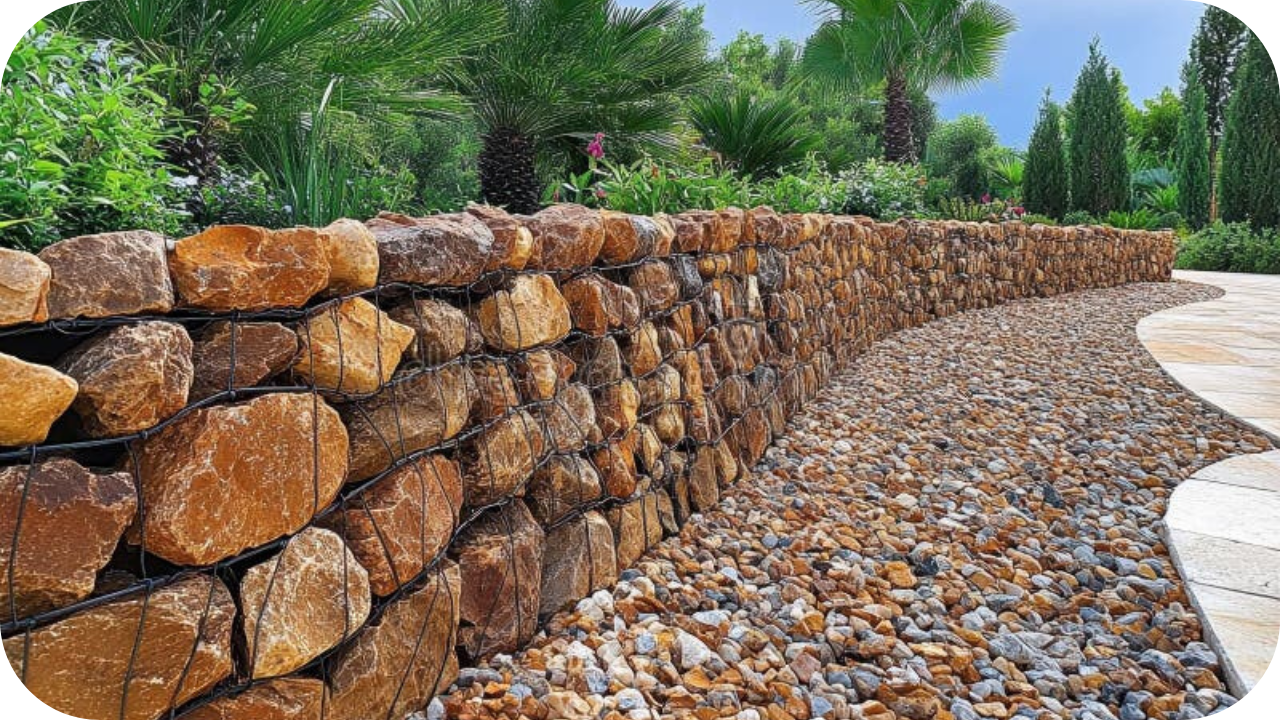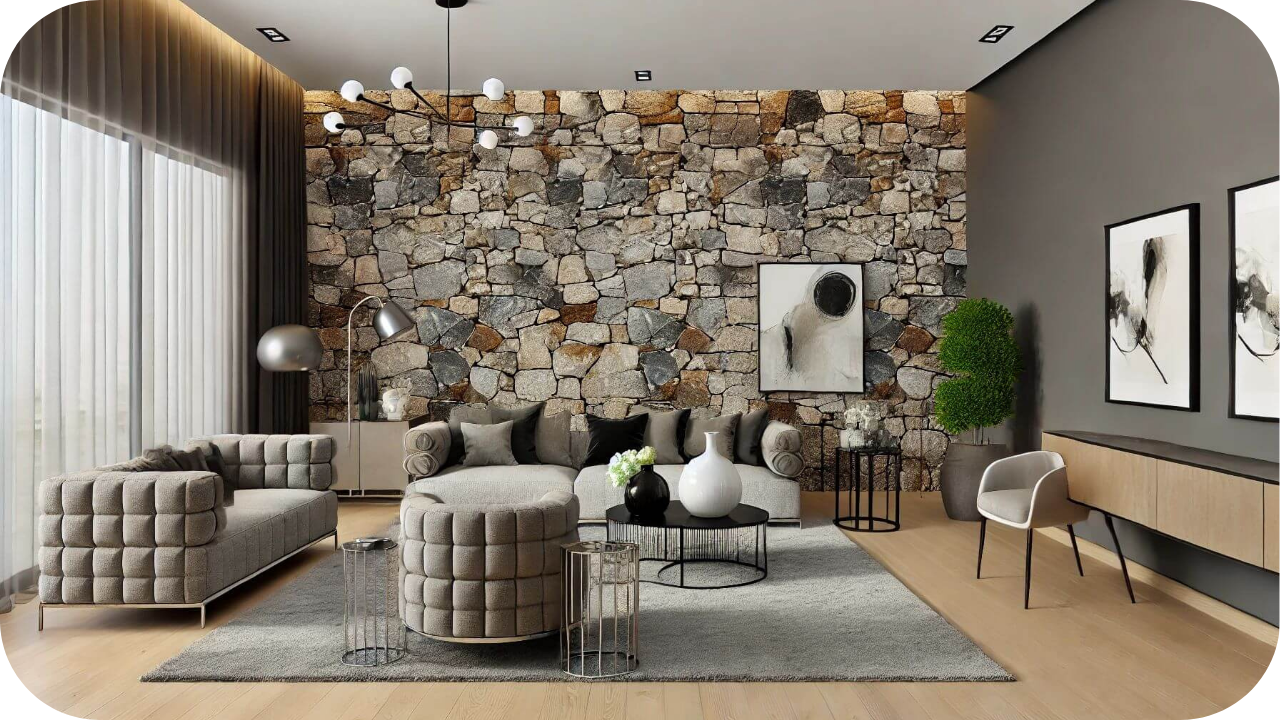
Finding the perfect material for your accent walls and backsplashes can be challenging.
Many materials lack durability and style or are difficult to maintain, leaving you frustrated with limited design options.
Discover how porcelain tiles can be the ideal solution.
This article explores their benefits, design ideas, installation tips, and maintenance, helping you create stunning and practical accent walls and backsplashes.
Can Porcelain Tiles Be Used for Accent Walls or Backsplashes?
Porcelain tiles are an excellent choice for accent walls and backsplashes. They’re durable, easy to clean, and resistant to moisture and stains, making them ideal for kitchens and bathrooms. With various colours, patterns, and textures, porcelain tiles can add a stylish and unique touch to any room.
Advantages of Using Porcelain Tiles
Looking to elevate your space with a lasting style? Porcelain tiles offer durability, design versatility, and low maintenance, making them ideal for accent walls and backsplashes.
- Durability: Porcelain tiles are exceptionally durable and resistant to scratches, stains, and moisture. Their longevity reduces the need for frequent replacements, making them cost-effective in the long run.
- Versatility in Design: Available in various styles, colours, and textures, porcelain tiles can mimic natural stone or wood with remarkable realism. This versatility allows for diverse aesthetic effects, from modern minimalism to rustic charm.
- Ease of Maintenance: Porcelain tiles are easy to clean and require minimal upkeep. Their non-porous surface prevents mould and bacteria growth, promoting healthier indoor environments. They are also resistant to fading and unaffected by UV light exposure, making them suitable for areas exposed to sunlight.
- Environmental Sustainability: Made from natural materials and recyclable components, porcelain tiles are environmentally friendly choices. They contribute to sustainable building practices while offering superior performance.
- Heat and Moisture Resistance: Porcelain tiles are highly resistant to heat and moisture, making them suitable for use in kitchens, bathrooms, and other humid areas. They do not expand or contract due to temperature changes, ensuring long-term stability.
- Fire Resistance: Porcelain tiles are non-combustible and do not emit toxic fumes or smoke in case of fire, enhancing safety in residential and commercial spaces.
Design Ideas for Accent Walls
Transforming your space with porcelain tiles offers myriad design possibilities for accent walls. One compelling option is to use statement patterns, such as geometric designs or intricate mosaics, to create a bold focal point in any room.
These patterns can add visual interest and personality, enhancing the overall ambience. Texture also plays a crucial role—textured porcelain tiles can simulate the feel of natural materials like stone or wood, adding depth and tactile appeal to your accent wall.
Another effective approach is to play with colour contrast. Choosing porcelain tiles in contrasting hues allows you to create a dynamic visual impact that draws attention to the accent wall.
Light tiles paired with dark accents or vice versa can achieve a striking effect. Consider extending porcelain tiles beyond traditional backsplashes to cover an entire feature wall for a more expansive look. This approach works well in living rooms or dining areas, adding a sophisticated touch to the decor.
Tile orientation is another aspect to consider—vertical layouts can elongate the room, while horizontal arrangements can create a sense of width. This versatility allows you to tailor the design to complement your space’s specific dimensions and style.
Installation Tips
A flawless installation for porcelain tile accent walls or backsplashes requires careful attention to detail. Here are some key tips:
- Surface Preparation: Ensure the wall is clean and level. Remove any debris, dust, or grease, and repair any imperfections. This provides a smooth foundation essential for a successful installation, preventing future issues like tiles popping off or uneven surfaces.
- Use Quality Thin-Set Mortar: Select a high-quality thin-set mortar specifically designed for porcelain tiles. This type of mortar has superior bonding strength. Mix it according to the manufacturer’s instructions and apply it evenly with a notched trowel to achieve proper adhesion. The notches help create grooves that enhance the bonding surface.
- Tile Spacing: Use tile spacers to maintain uniform grout lines. Consistent spacing is crucial for a professional finish and helps ensure the grout joints are even and aesthetically pleasing. Choose the spacer size based on the desired width of your grout lines.
- Cutting Tiles: Use a tile cutter or wet saw for precise cuts, especially for corners and edges. Accurate cutting ensures a seamless fit and helps maintain the overall design. Measure carefully before cutting, and wear safety goggles and gloves to protect yourself.
- Support Structure: Verify that the wall structure can support the weight of the porcelain tiles. Porcelain tiles can be heavy, and using appropriate fixing materials, such as robust anchors or screws, is essential to secure them properly, especially for larger tiles or feature walls.
- Level and Alignment: Check for level and alignment regularly during installation. Adjust tiles using a spirit level to ensure a straight and even layout. This step is crucial for maintaining a professional look and preventing future issues with tile alignment.
- Curing Time: Allow the mortar to cure fully before grouting. Follow the manufacturer’s instructions for drying times to ensure a strong bond. Rushing this process can compromise the tiles’ adhesion and stability.
- Grout Application: Choose a grout colour that complements your tiles. Mix the grout to a consistent, smooth texture and apply it evenly with a grout float, ensuring all joints are filled completely. Work in small sections to prevent the grout from drying out before you can clean it.
- Cleaning: After grouting, clean off excess grout with a damp sponge. Rinse the sponge frequently to avoid smearing grout over the tiles. Once the grout has been set, polish the tiles with a soft cloth to remove any haze. This final step ensures that your tiles look clean and pristine.
To ensure proper installation, read this: How to Avoid Common Mistakes When Installing Porcelain Tiles?
Maintenance and Care
Ensuring your porcelain tile accent walls or backsplashes remain pristine requires minimal effort but consistent care. Porcelain tiles are renowned for their durability and ease of maintenance, making them a practical choice for busy areas.
- Regular Cleaning: To keep your tiles looking their best, clean them regularly with a soft cloth or mop and a mild detergent. Avoid using abrasive cleaners or harsh chemicals, which can damage the tile surface. Simply wipe down the tiles with a damp cloth to remove dust and spills.
- Grout Maintenance: The grout lines between your tiles can accumulate dirt and grime over time. Clean grout lines periodically with baking soda and water or a grout cleaner. Use a soft brush to scrub the grout gently, ensuring you don’t damage the tiles.
- Sealant Application: Although porcelain tiles are non-porous, the grout lines can benefit from a sealant application to prevent staining and moisture penetration. Apply a grout sealant once a year to maintain its integrity and appearance.
- Preventive Measures: Protect your tiles from scratches and chips by avoiding heavy impacts and using felt pads under furniture. In kitchens, use chopping boards to prevent direct contact between the tiles and sharp objects.
- Spot Cleaning: Address spills and stains promptly to prevent them from setting. Use a specialized porcelain tile cleaner following the manufacturer’s instructions for tougher stains.
Conclusion
Porcelain tiles are ideal for accent walls and backsplashes due to their durability, variety, and low maintenance. Explore these versatile options to enhance your home. Visit Splendour In Stone Melbourne for expert advice and high-quality porcelain tiles to transform your spaces.
More To Explore

8 Advantages of Using Stone Grid Gabions in Your Landscape
Are you seeking a durable, cost-effective solution to elevate your landscape? Stone grid gabions might be the perfect choice! These versatile, eco-friendly structures offer a

10 Stunning Feature Wall Ideas Using Natural Stone
Looking to elevate your home with a stunning feature wall? Natural stone offers a timeless, elegant touch that can transform any room. From sleek marble


